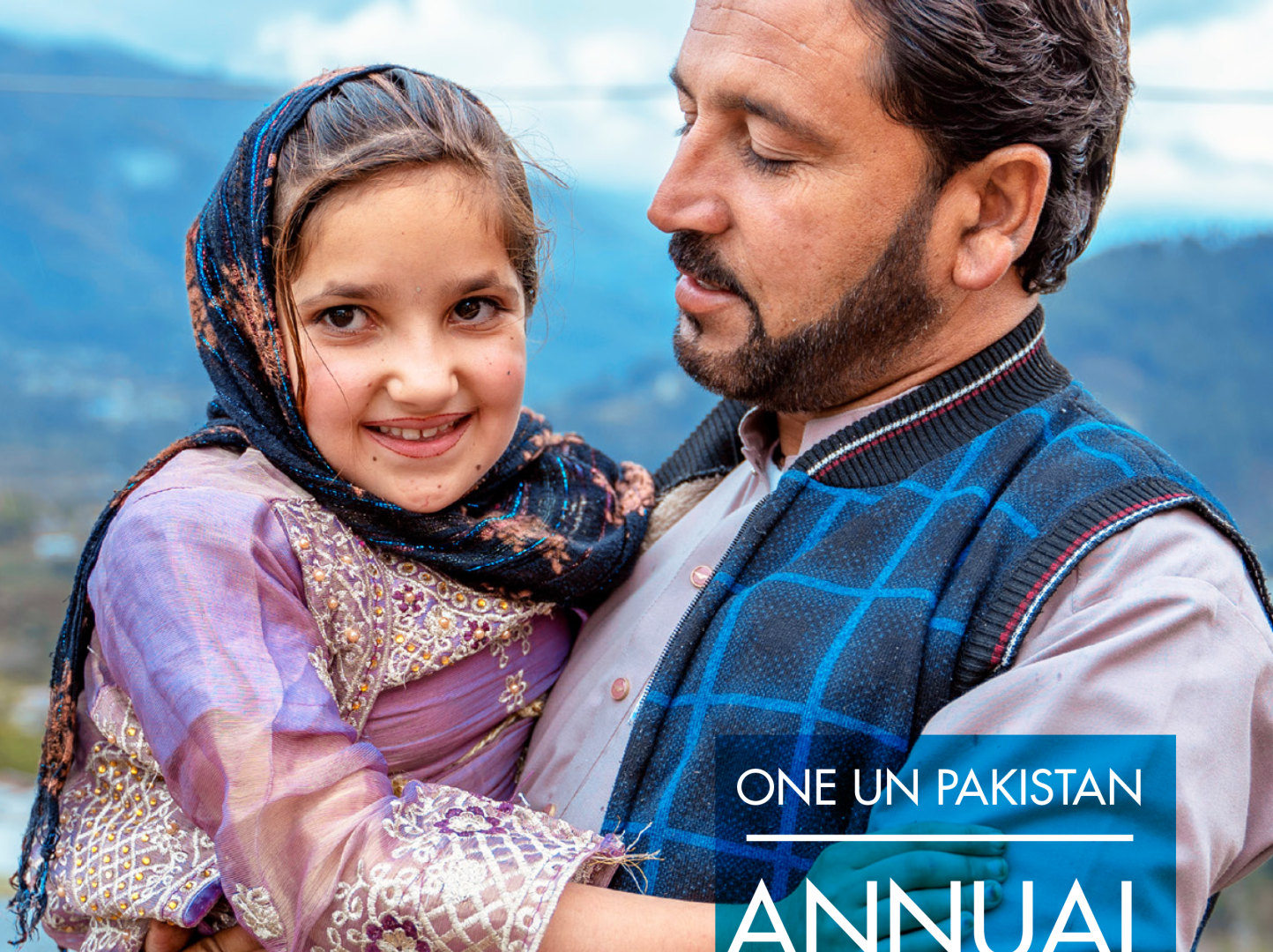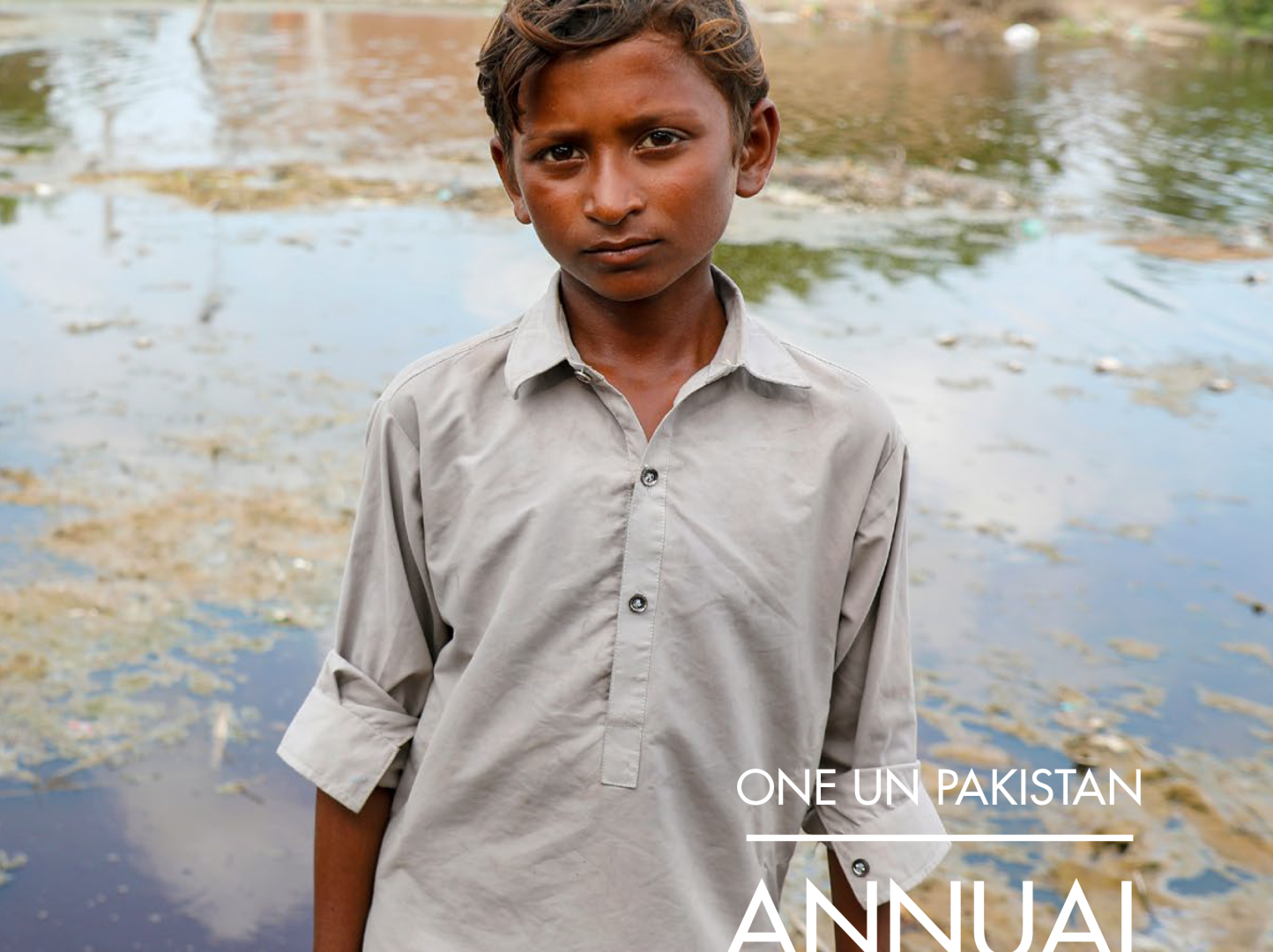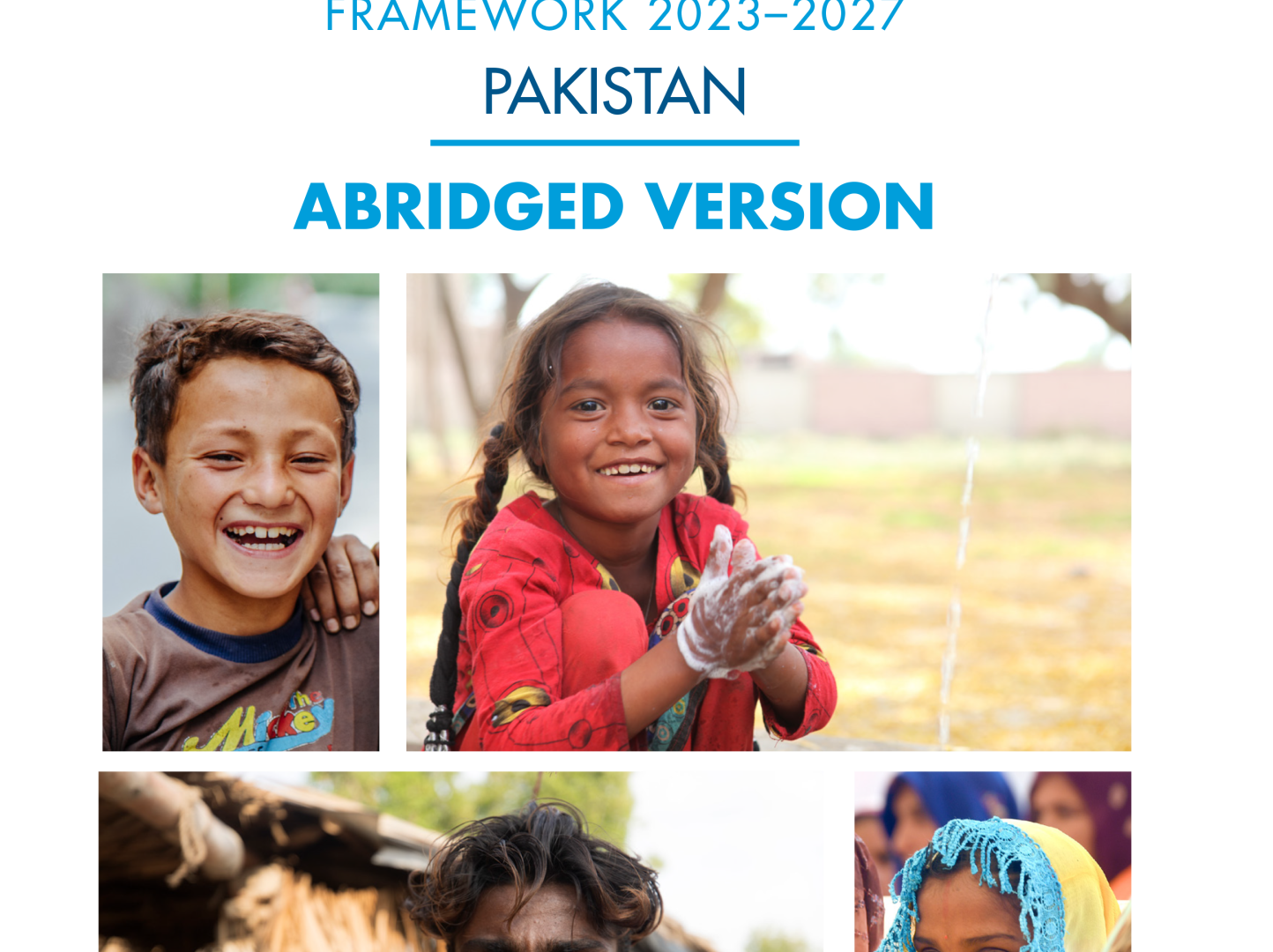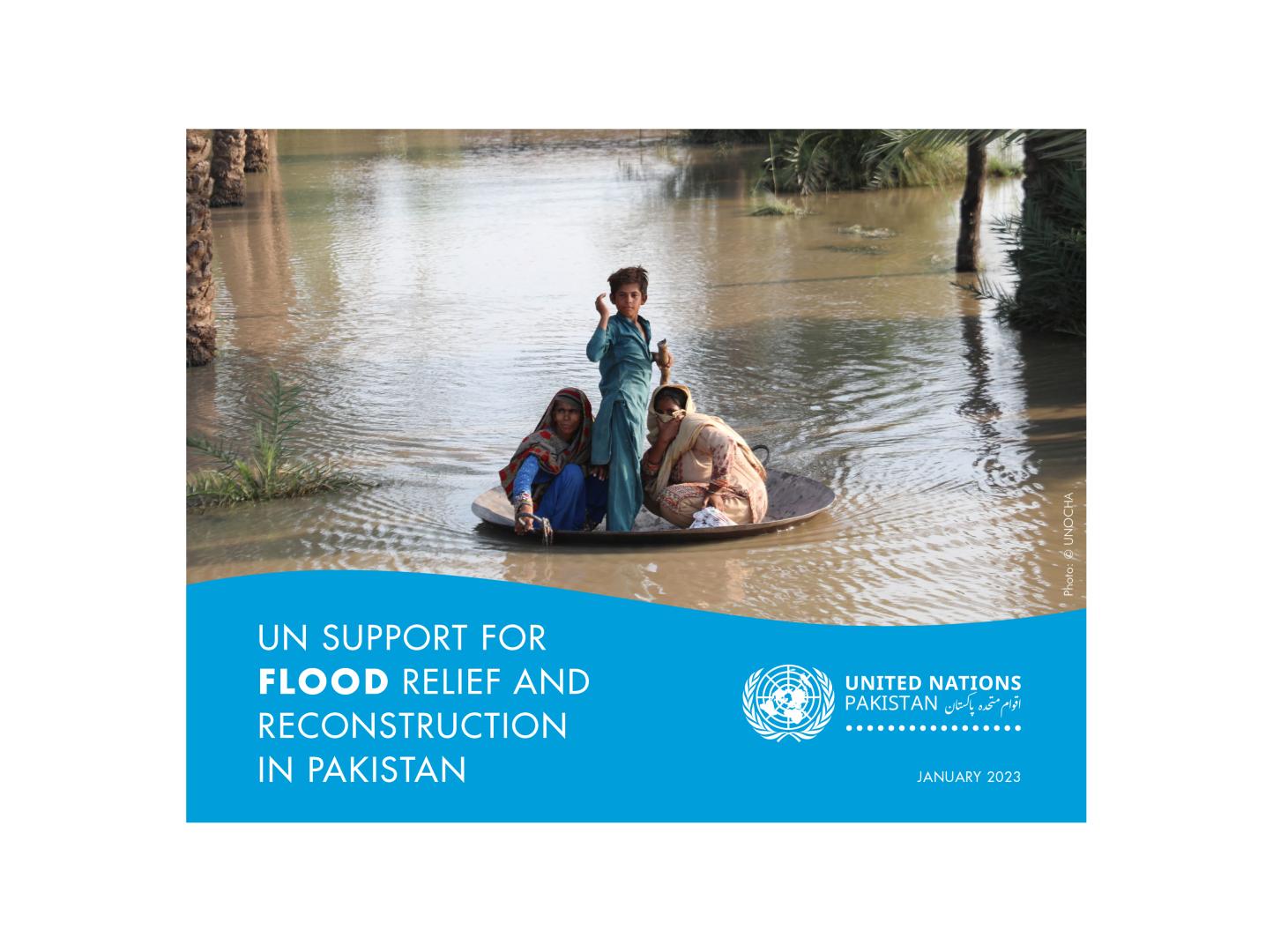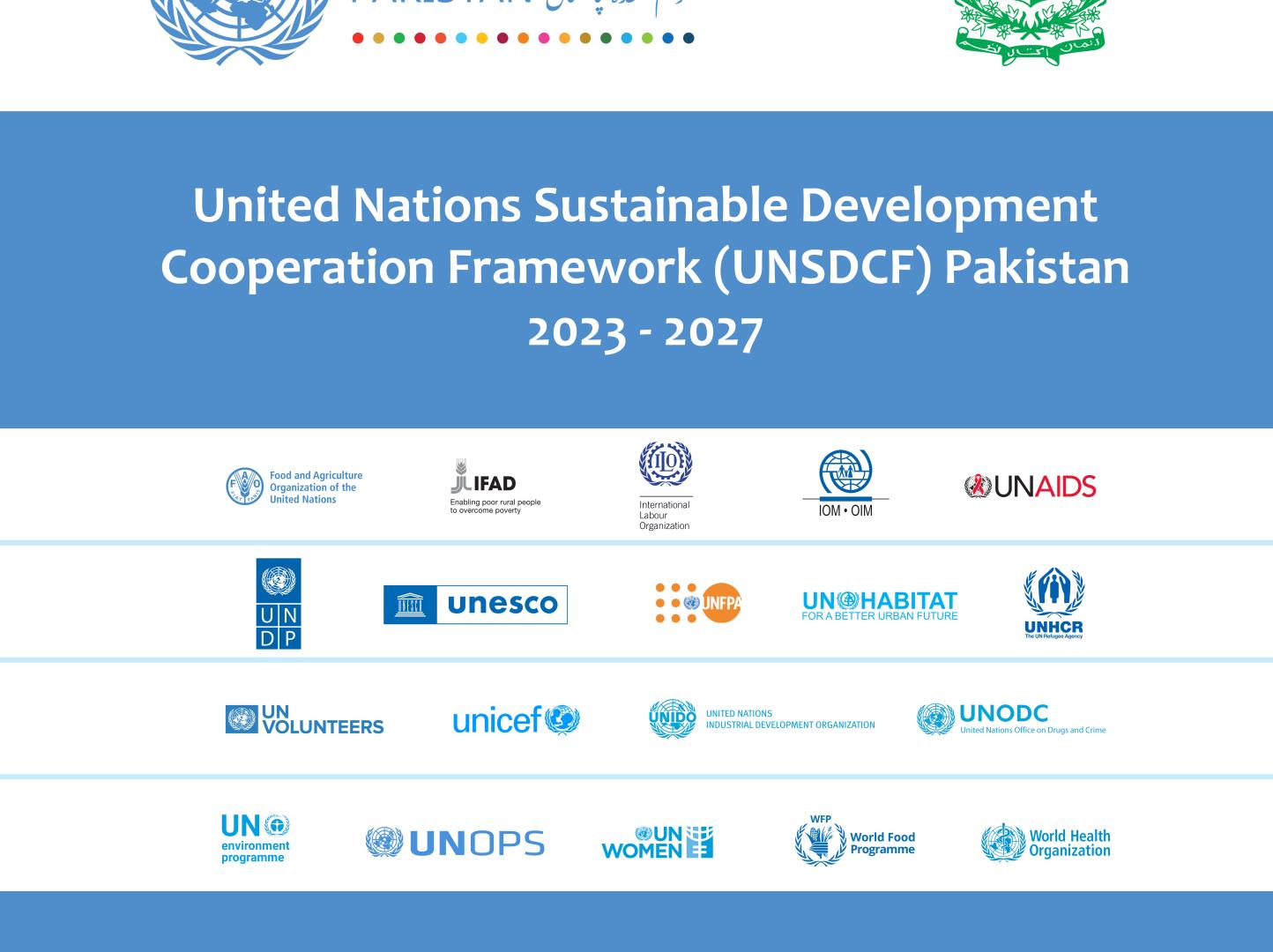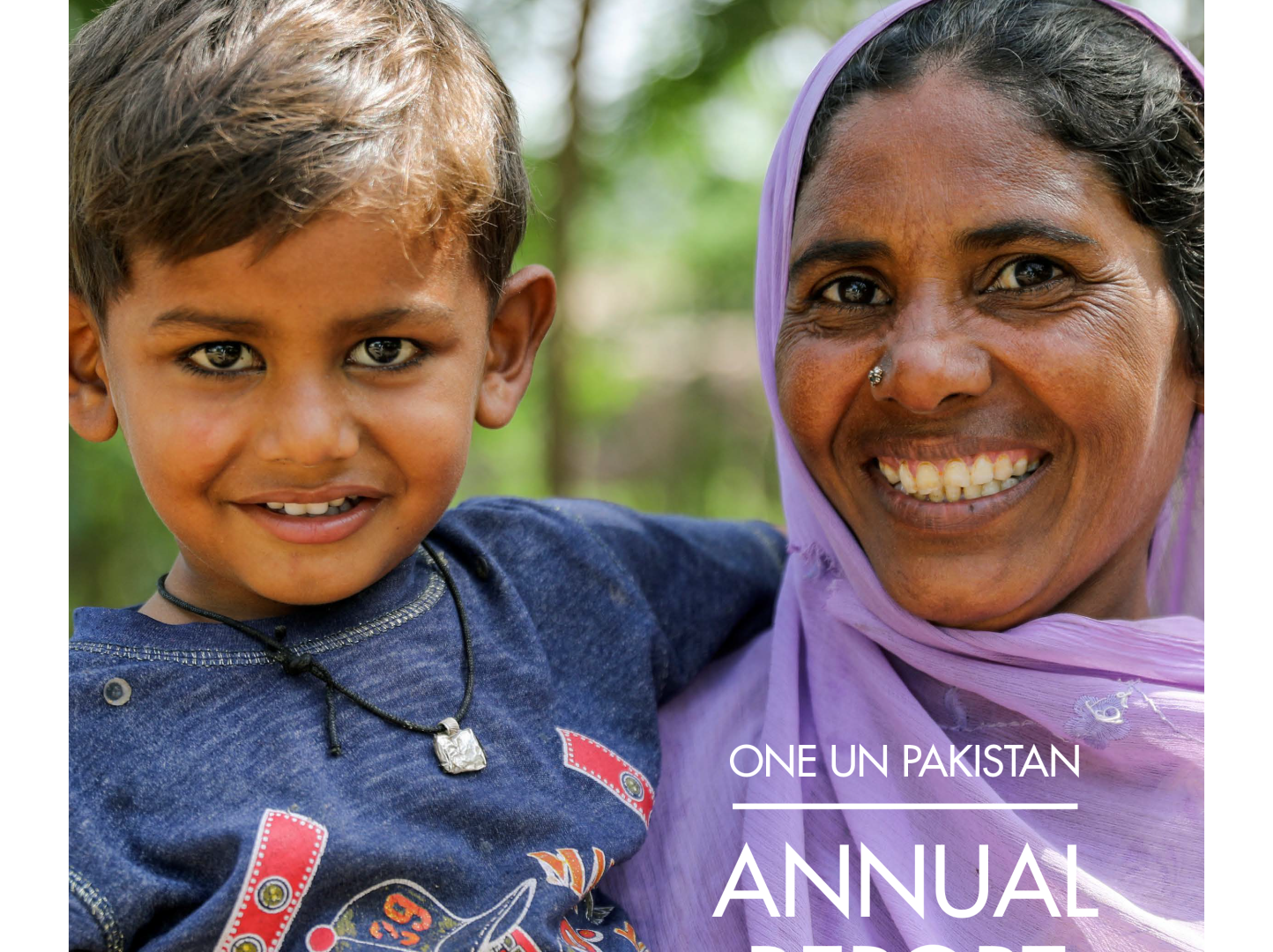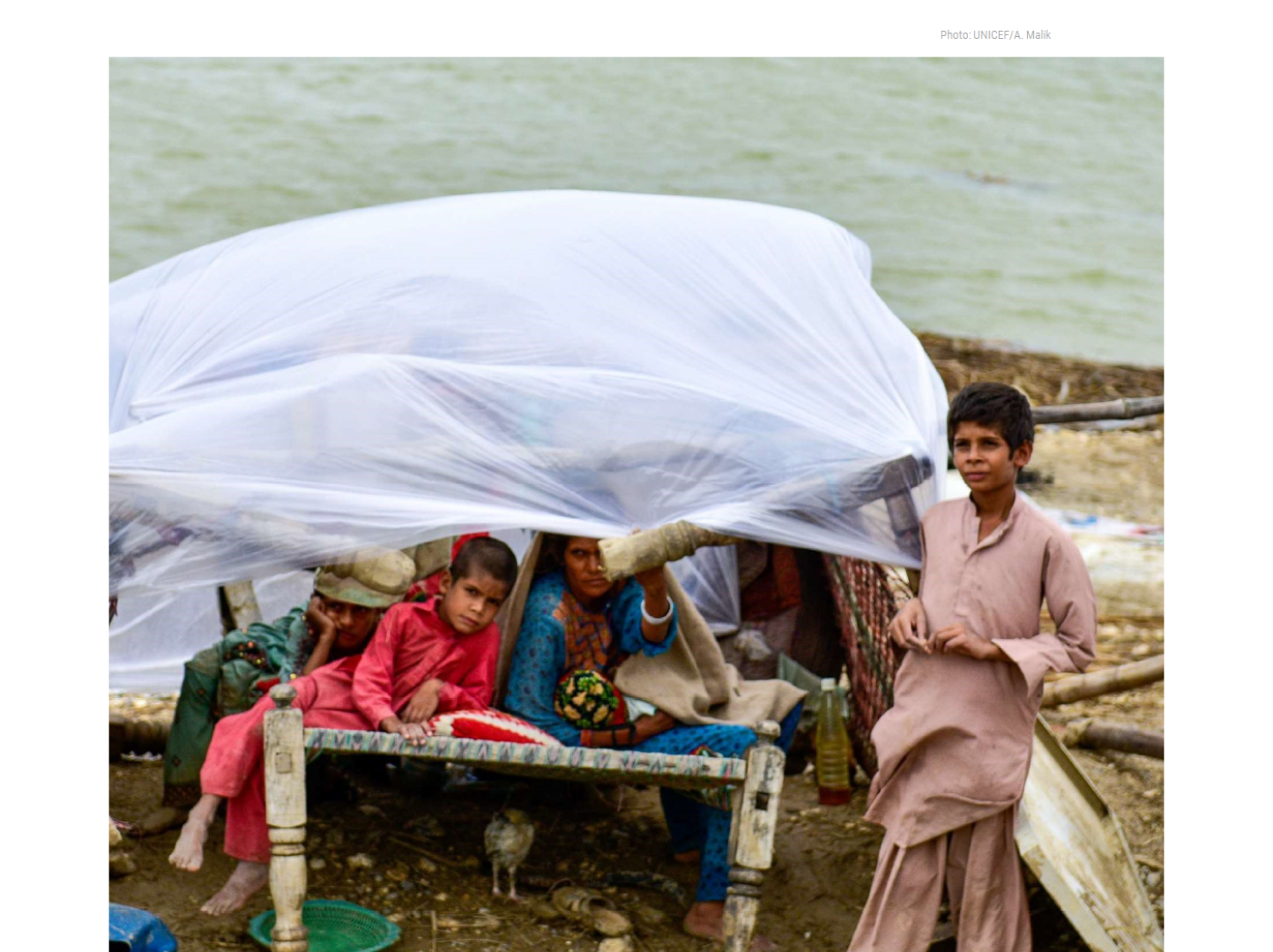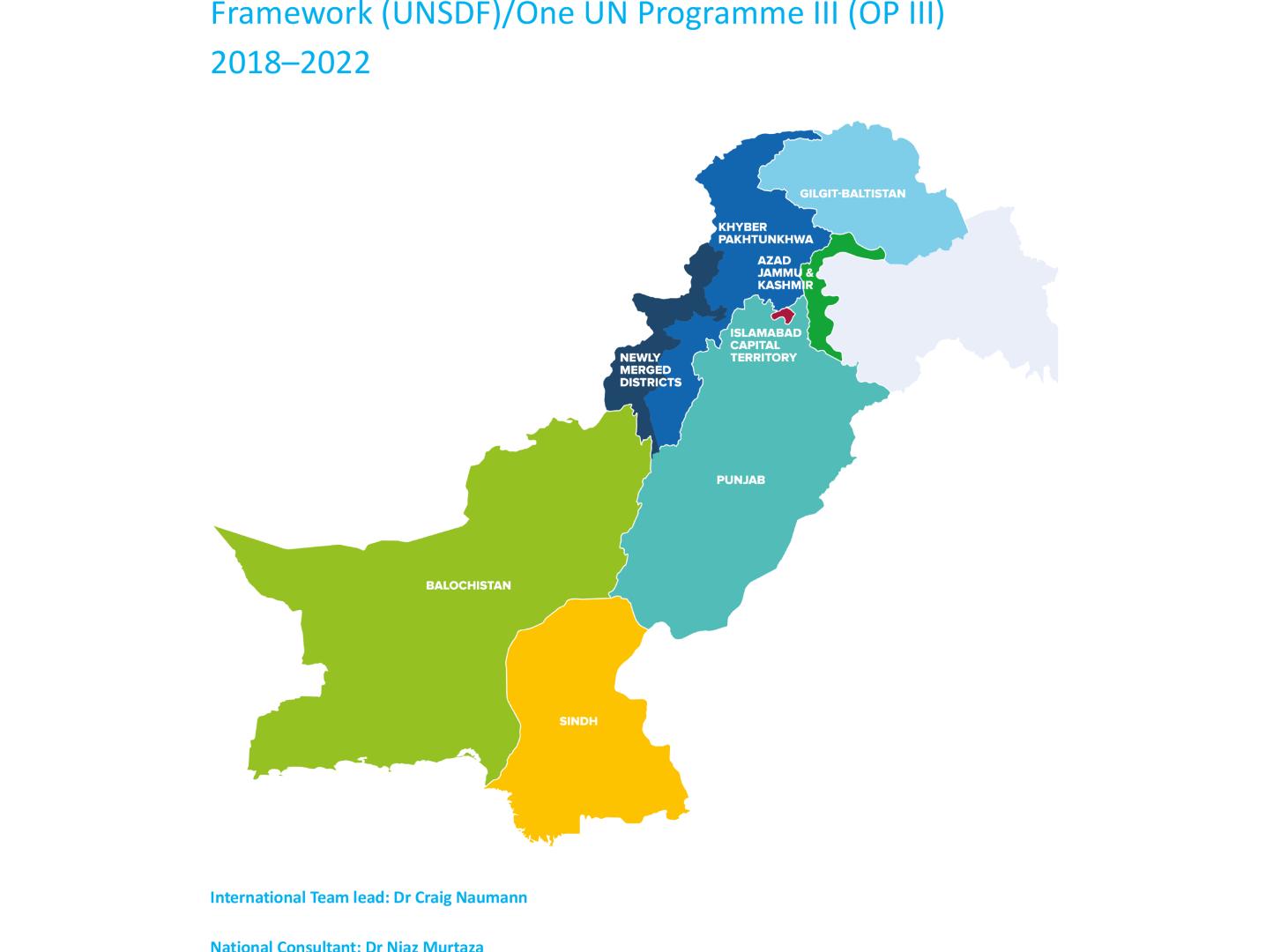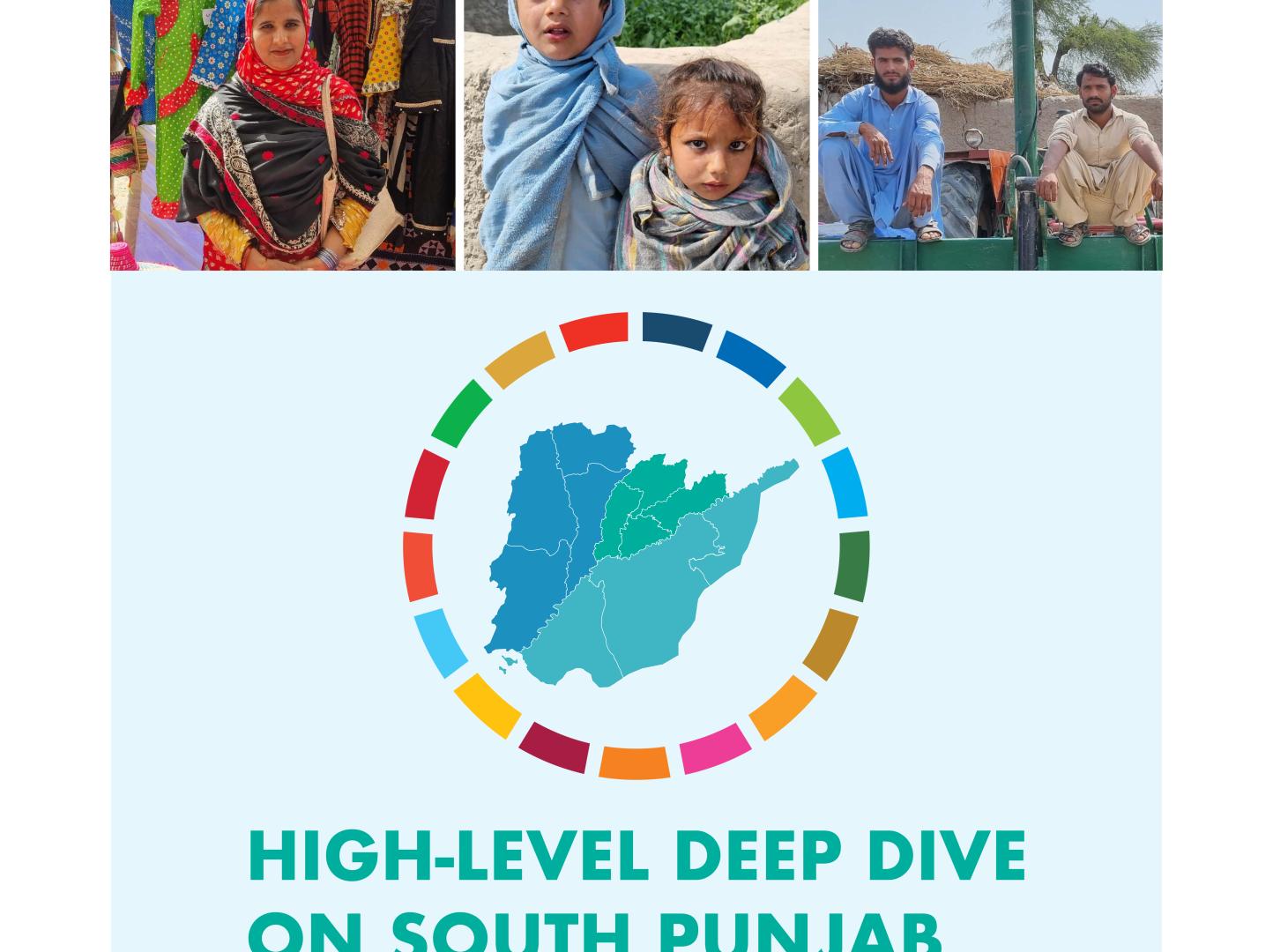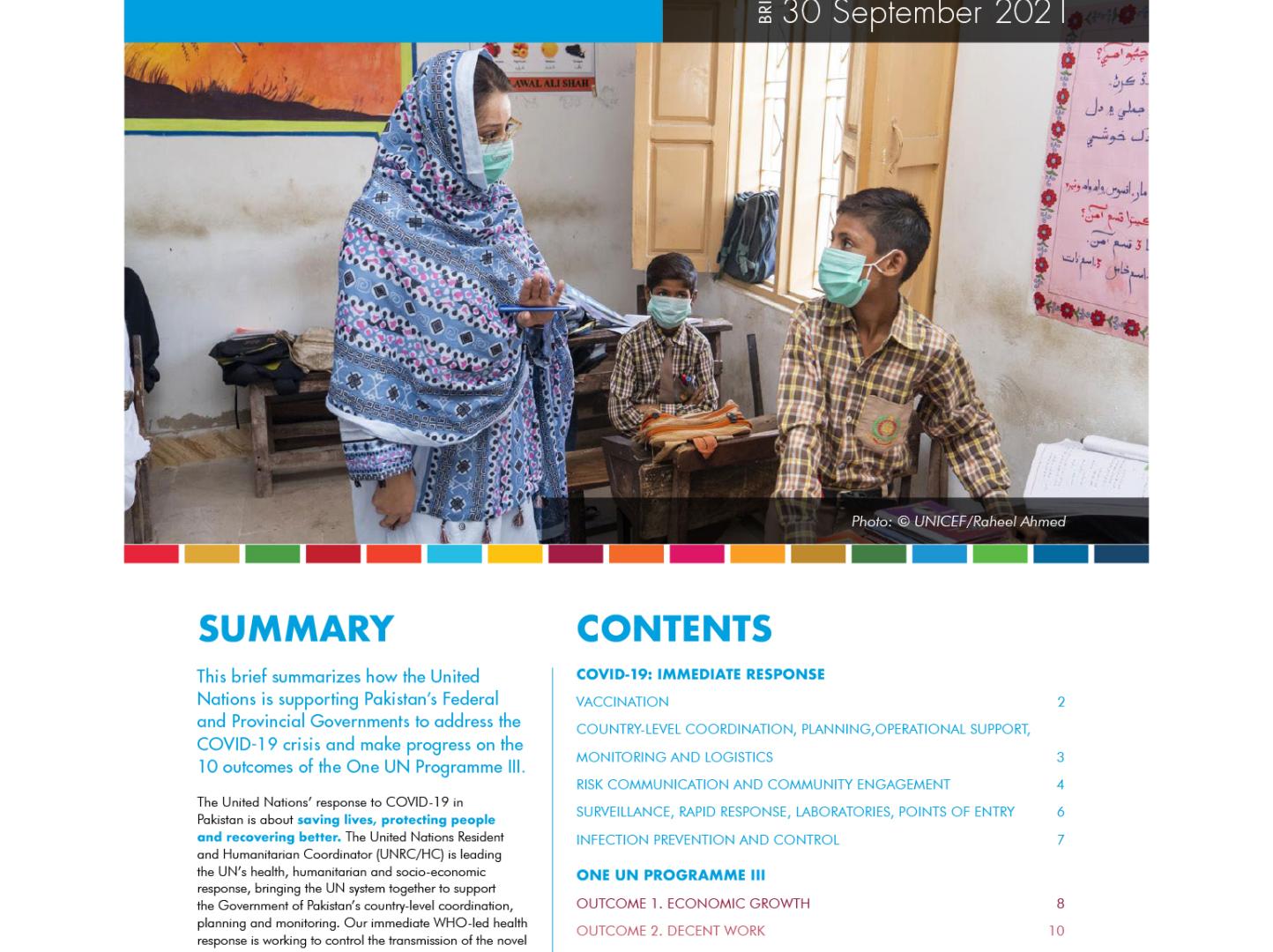Latest
Press Release
05 February 2025
Media Update-2: United Nations Pakistan, 5 February 2025
Learn more
Press Release
05 February 2025
Media Update: United Nations Pakistan,5 February 2025
Learn more
Story
27 January 2025
Enhancing Peacekeeping: Pakistan Army Integrates UN Field Medical Assistants Course
Learn more
Latest
The Sustainable Development Goals in Pakistan
Pakistan affirmed its commitment to the 2030 Agenda for Sustainable Development by adopting the Sustainable Development Goals (SDGs) as its own national development agenda through a unanimous National Assembly Resolution in 2016. Since then, the country has made considerable progress by mainstreaming these goals in national policies and strategies and developing an institutional framework for SDGs implementation in Pakistan. SDG support units have been established at federal and provincial levels with the planning institutions (Ministry of Planning Development and Special Initiatives and Provincial Planning and Development Departments) to guide SDGs implementation and monitoring it progress. In 2018, the Government designed and approved a National SDGs Framework that envisages a national vision to prioritize and localize SDGs. Localized provincial SDG Frameworks are being formulated. The focus of the government is on mainstreaming SDGs in planning processes, ensuring strong monitoring and reporting on SDGs, ensuring public financial allocations are aligned to SDGs and alternate financing modalities are being explored, and to benefit from use of technology to accelerate progress towards SDGs.
Publication
08 November 2022
United Nations Sustainable Development Cooperation Framework (UNSDCF) 2023-2027 for Pakistan
With this framework, the UN in Pakistan has prioritized five development outcomes to improve people’s lives in Pakistan, especially the lives of those at the greatest risk of being left behind. The UN will support Pakistan to move forward on its pathway towards sustainable development, on the understanding that:✓ If basic social services – including health, nutrition, water, sanitation and hygiene (WASH), education and social protection – are strengthened, there will be increased equal access to sustainable quality services for all.✓ If women, girls and transgender persons are empowered to reach their fullest potential, their human, social, economic and cultural rights will be fully protected and upheld, and they will have decision-making power over all aspects of their lives.✓ If the health of the Indus River Basin is restored and protected, and resources are equitably and efficiently used, the Indus will sustain a thriving civilization from its sources to the sea, and Pakistan will be much better equipped to adapt to climate change and mitigate its impact.✓ If there is sustainable and inclusive green economic growth and decent work, there will be equitable employment opportunities, enhanced productivity, a sustainable business environment and the realization of workers’ rights.✓ If inclusive, accountable and efficient governance systems are in place, they will provide equitable service delivery, affordable and accessible justice systems, and enable people to be aware of – and obtain – their rights.To download an abridged version: Click here, filtered_html
1 of 3
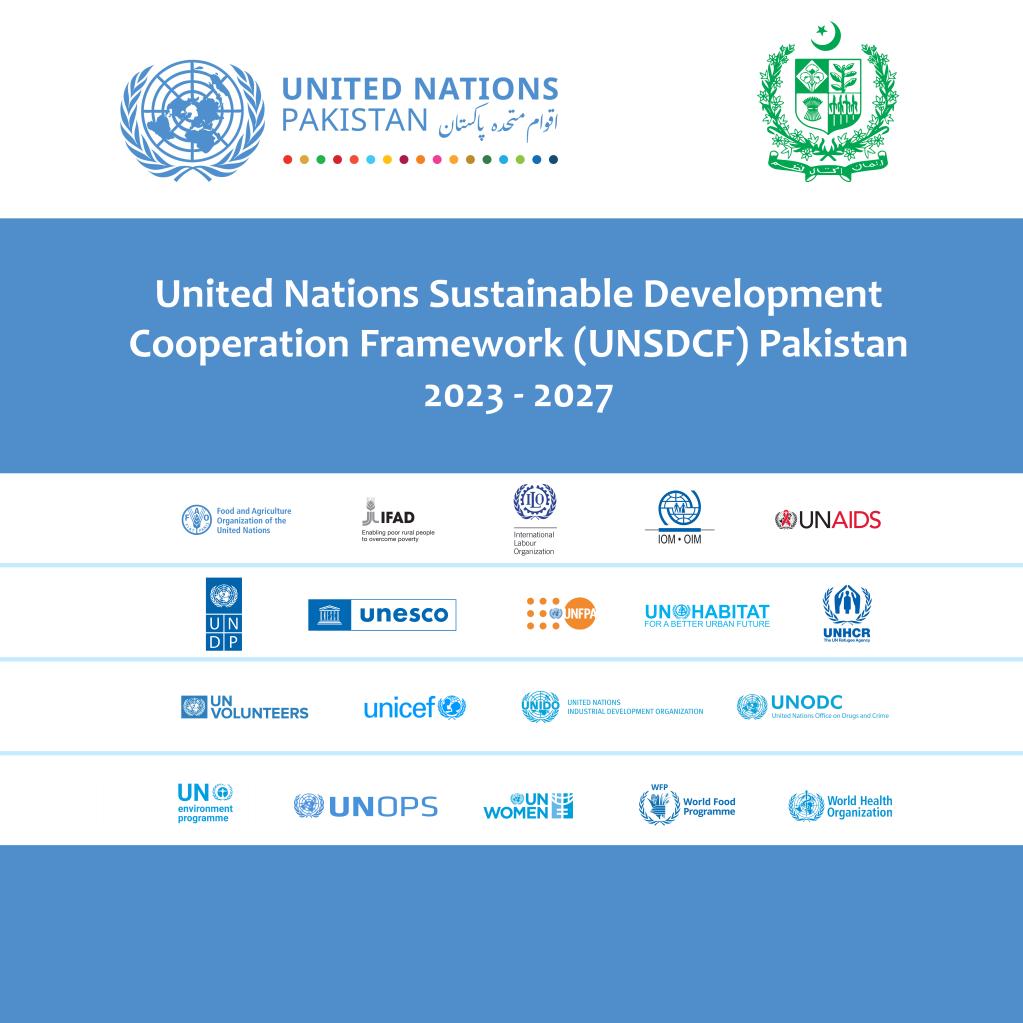
Story
18 June 2020
Pakistan: Further desert locust damage forecast in coming agricultural seasons
The Government of Pakistan’s preliminary estimate of monetary losses due to desert locusts over the two coming agricultural seasons in 2020 and 2021 may range from US$3.4 billion to $10.21 billion.
Locust damage has significantly affected many farmers already, with further significant locust damage forecast at the end of summer.
In late January, the Government of Pakistan declared the desert locust a national emergency and set up the National Action Plan for Desert Locust Control and Surveillance and a high-level National Locust Control Centre.
The Food and Agriculture Organization (FAO) is providing technical advice and procurement support to the Government for locust surveillance and control activities, including locust threat forecasts and control operation strategies.
FAO and the World Food Programme and partners, in coordination with the Government, will access needs in the worst-impacted districts, which have also experienced multiple shocks over the past 18 months, including drought, flash flooding, a cold wave and COVID-19.
The Government of Pakistan needs $372 million over the coming three years in additional funding to survey, control and recover from the locust damage.
FAO launched the Desert Locust Upsurge Global Response Plan 2020, which includes $12.5 million for Pakistan for crisis response, of which only $1.9 million has been funded.
More than 3 million people in Pakistan are facing severe acute food insecurity, with the situation particularly precarious in Balochistan.
It is estimated that approximately 34,000 households will need of emergency livelihood and food-security assistance due to crop losses. Many more people may be indirectly affected by crop losses leading to price rises in key commodities.
, filtered_html
1 of 3

Story
16 June 2020
A Coordinated Response to Coronavirus
On Wednesday, 11 March 2020, the World Health Organization (WHO) characterized the coronavirus (COVID-19) viral disease a pandemic, but it is a pandemic that can be controlled. Coronavirus (COVID-19) is the infectious disease caused by the most recently discovered coronavirus.
Dr. Tedros Adhanom Ghebreyesus, who heads the UN agency, said, in his statement, “Let me be clear: describing this as a pandemic does not mean that countries should give up.”
The UN Secretary-General urged all countries to take a comprehensive approach tailored to their circumstances – with containment as the central pillar. COVID-19 is affecting thousands of people, impacting countries’ health systems and having widespread social and economic effects. The UN entities working on development, the United Nations Sustainable Development Group, are supporting countries in their preparedness and response plans.
This page convenes sources of information and guidance from the World Health Organization (WHO) and the United Nations (UN) regarding the current outbreak of novel coronavirus (COVID-19).
WHO is working closely with global experts, governments and partners to track the spread and to provide guidance to countries and individuals on measures to protect health and prevent the spread of this outbreak.
To stay up to date with the latest information, please visit:
United Nations Covid-19 Response: https://www.un.org/coronavirus
World Health Organization: https://www.who.int/emergencies/diseases/novel-coronavirus-2019
Latest news on the United Nations’ response: https://news.un.org/en/events/un-news-coverage-coronavirus-outbreak
WHO guidance for countries: https://www.who.int/emergencies/diseases/novel-coronavirus-2019/technical
Coronavirus (COVID-19) Situation: https://experience.arcgis.com/experience/685d0ace521648f8a5beeeee1b9125cd
, filtered_html
1 of 3
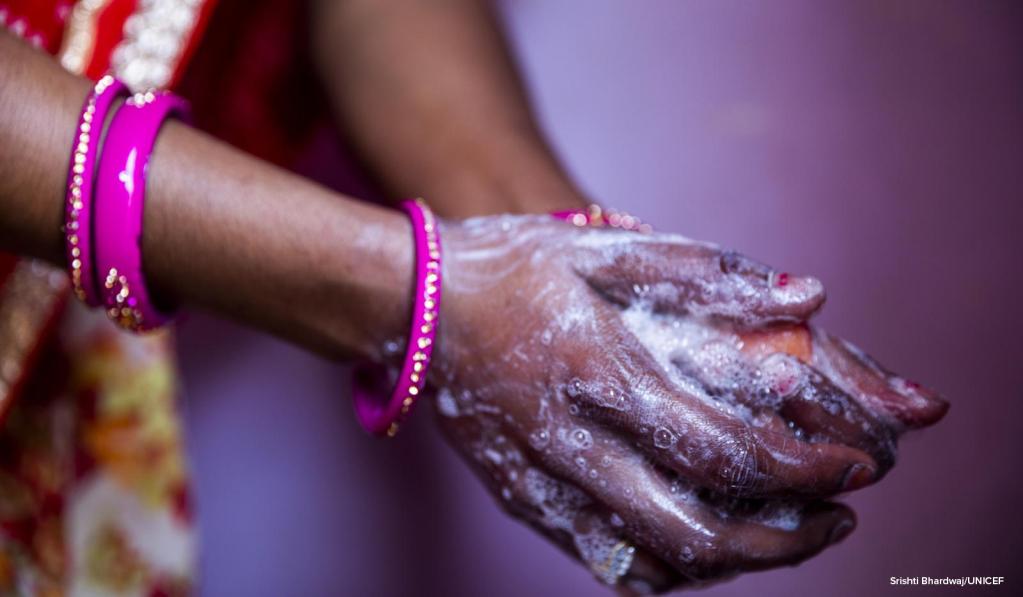
Story
27 January 2025
Enhancing Peacekeeping: Pakistan Army Integrates UN Field Medical Assistants Course
As one of the largest and longest-serving contributors to UN peacekeeping, Pakistan has recently taken an important step to enhance its contributions to peacekeeping globally. Pakistan has integrated the United Nations Field Medical Assistants Course (FMAC) into its pre-deployment training for its uniformed peacekeepers. This initiative aims to improve the safety and effectiveness of Pakistani peacekeepers serving in UN missions worldwide.The UN FMAC, launched by the Department of Operational Support in 2023 after a series of successful pilots, forms part of the United Nations Triangular Partnership Programme’s (TPP) broader efforts to ensure peacekeepers can provide immediate care when needed most.The course equips participants with life-saving skills to stabilise casualties until more advanced medical care is available. This training is crucial in the challenging, and often hostile, environments where peacekeepers operate.A key component of FMAC is the Training of Trainers (ToT), which enables medical personnel from Troop-Contributing Countries to train their own troops for peacekeeping deployments. This approach ensures sustainable knowledge transfer and capacity building in participating countries.Brigadier General Dr Muhammad Muttahhar Asim Niaz, a seasoned Pakistani surgeon, played a central role in bringing this training to Pakistan. After attending the FMAC ToT in July 2023, Brigadier Asim saw an opportunity to elevate Pakistan’s medical training for peacekeepers. “No soldier should die from an injury when prompt treatment can prevent death”, the Brigadier General Doctor emphasized. Building on the UN’s 7-day FMAC, Pakistan developed its Combat Medics Course (CMC), a 14-day programme that incorporates FMAC elements while adding modules tailored to the unique needs of missions that Pakistani peacekeepers deploy to. This includes modules on Environmental Hazards, Snake, Scorpion and Animal Bites, Poisoning, Management of Specific Injuries, and Blood Pressure Monitoring.To increase accessibility, the curriculum has been translated into Urdu, complementing the UN’s existing translations in English, French, Spanish, and Portuguese.Throughout his time in the Pakistan Army, Brigadier Asim has witnessed many preventable deaths that can be avoided with prompt and appropriate treatment. This, he says, underscores the importance of preventative measures and immediate response skills to save lives.As of June 2024, Pakistan has successfully conducted three iterations of the CMC ToT. The integration of FMAC standards into Pakistan’s pre-deployment training marks a significant step in improving peacekeepers’ medical readiness. By investing in long-term capacities, Pakistan is contributing to more effective national and mission-level deployments while ensuring better protection for its peacekeepers. Brigadier Asim summarised the empowering nature of this training: "This is something for you, it's not for me. I'm going to tell you how to use [the medical kit but] the person who is going to use it is you yourself". The United Nations, through the TPP, will continue investing in the delivery of FMAC and FMAC ToT courses, with plans for further implementation in 2025. The success and longevity of programmes like FMAC depend on strong partnerships between the United Nations TPP and Member States. Through these collaborative efforts and continued investments in training, peacekeepers are better prepared to face challenges and save lives in their crucial work around the world. The UN TPP is a flagship peacekeeping training and operational support programme of the Department of Operational Support. Learn more about the UN TPP through this link., filtered_html
1 of 5

Story
09 January 2025
Bold action to rescue SDGs in Pakistan
AS the New Year beckons, and the world begins to count down the final six years of the United Nations’ Agenda 2030, our shared vision of decisive progress towards sustainable development everywhere stands at a precipice. The ambitions of the Sustainable Development Goals (SDGs) — launched in 2015 to end poverty, protect the planet, and ensure prosperity for all — are slipping out of reach.In recognition of this grave danger, UN Secretary General António Guterres has declared a “global emergency”, underscoring the urgent need for bold and transformative actions. The recently adopted UN Pact for the Future provides a renewed framework for re-energising Agenda 2030. Specifically, member states have reaffirmed their commitment to closing the SDG financing gap, through scaling up official development assistance, combating illicit financial flows, and mobilising domestic and private resources.Pakistan exemplifies the struggle of low- and middle-income countries trapped in a web of debt, climate vulnerability, and under-investment in human development. Ranked 137th out of 166 nations in the UN Sustainable Development Report 2024, Pakistan’s SDG performance is off track. While modest improvements are noted in some areas, eight out of the 17 SDGs show stagnation, and three are regressing.Gains that are made in human development terms are literally washed away by the effects of climate change on a regular basis.An estimated 40 per cent of Pakistan’s population — approximately 97 million people — lives in poverty, with women disproportionately bearing the impact. Twenty-six million children do not go to school and half of the women population cannot read or write. Forty per cent of children under five are stunted.These figures represent the enormous challenges Pakistan has to overcome to achieve sustainable development and improve the living standards of its people. While Pakistan has made progress in 2024 towards macroeconomic stabilisation, with inflation dropping to a six-year low, the financing gap for achieving the SDGs in the country remains staggering: a conservative projection puts it at around $60 billion annually, which is 16pc of GDP. The price tag of turning such indicators of deprivation around, and meeting the SDGs, dwarfs the country’s revenue base.Without alternative sources of finance, we fear Agenda 2030 will not be accomplished.As of September 2024, Pakistan’s total debt and liabilities stood at an estimated $308.2bn, representing 81.2pc of GDP. Of this, total external debt and liabilities amounted to $133.4bn. Debt servicing costs the government over half of its annual budget, leaving little room for investments in development priorities. Every dollar allocated to debt repayment is a dollar denied to building schools, improving healthcare, or mitigating the impacts of climate change. These issues are critical not only to human development in Pakistan, but also to the country’s future economic growth and prosperity.Pakistan’s challenges are compounded by the global climate crisis it did not create. Gains that are made in human development terms are literally washed away by the effects of climate change on a regular basis. Contributing less than 1pc to global emissions, Pakistan is among the top 10 nations that are most vulnerable to climate change. The devastating floods of 2022, which submerged more than 10pc of the country, served as a stark reminder of how the Global South bears the brunt of a crisis driven by the industrialised world. Pakistan is obliged to take on more debt to recover from, and attempt to build resilience to, disasters caused by consumption patterns far away, perpetuating a cycle of dependency and vulnerability.In the face of its SDG financing gap, it is time to consider bold options.A six-year standstill on the Pakistan government’s external debt repayments would be one pragmatic and morally compelling solution. It would free up an estimated $108bn, providing the fiscal breathing room needed to invest in re-energising Agenda 2030 in Pakistan. With these resources, Pakistan could widen social safety nets, lifting an estimated 10m out of extreme poverty;reduce maternal and infant mortality; improve schoolenrolment rates; andinvest in climate resilience to protect millions from future shocks.Critics will argue that implementing a debt standstill is fraught with challenges. Multilateral creditors may resist, citing preferred creditor status. Bilateral lenders may be reluctant to create a precedent. Private creditors may fear losses on bonds.These concerns are valid, but not insurmountable. Indeed, the world came together during the Covid-19 crisis to implement not dissimilar debt standstills. Let us recognise that the remaining six-year window to deliver Agenda 2030 represents a crossroads that is equally perilous. And, of course, any debt standstill arrangement would require a robust governance framework be put in place to ensure that funds freed are transparently allocated to SDG priorities, with clear accountability mechanisms to ensure proper use.Short of a full standstill, a break on interest payments can also be considered. Other countries have also experimented with “debt for development swap” arrangements.The UN’s Pact for the Future provides a unique opportunity to align global priorities with the needs of vulnerable nations. Its call to mobilise resources comprehensively to galvanise progress towards achieving Agenda 2030 in this last six years must be heeded.Let Pakistan breathe. Let it invest in its people and its future. And let this moment mark the beginning of a new era of global solidarity, where no nation is left behind in the quest for sustainable development. We are on the final stretch for the SDGs. It is time to be bold.Mohamed Yahya is the United Nations resident and humanitarian coordinator in Pakistan.Bilal Azhar Kayani is a member of the National Assembly and the convener of the National Parliamentary Taskforce on SDGs.Published in Dawn, December 21st, 2024, filtered_html
1 of 5

Story
13 November 2024
Pakistan’s Lady Health Workers: Offering a Lifeline of Health and Hope
As the sun rises over the desert of Tharparkar, the small village of Chehlar begins to wake up under a blistering sky. Despite the harsh heat, the people of Chehlar continue their daily routines. Parveen, 39, a mother of two, has already prepared a simple breakfast for her family and sent her daughters to school, which is miles away. Now, she gathers her materials, pamphlets, and tools for her session at the local health house.Today, in her role as a lady health worker, Parveen will meet with a group of women who have walked, some for over an hour along with their children, to address a diarrhea outbreak in the village. Poor sanitation and lack of clean water have made many sick, and there is a risk of acute malnutrition if the situation persists. Sitting in a circle in the stifling heat, the women listen attentively to Parveen.“It is important to wash hands frequently,” she advises. “If you don’t have access to clean water, boil it before drinking, and eat soft foods such as potatoes, boiled rice, and lentils to boost your immune system.” During the session, Parveen records the names of those needing further examination and prepares to refer them to the nearby health center for nutrition assistance. She then checks the children for malnutrition, using a simple tape measure around their upper arms. Today, an eight-month-old boy shows signs of severe undernourishment. His mother watches anxiously as Parveen gently reassures her, offering guidance on nutrition and registering the child for additional care.This is just one part of Parveen’s work. For 24 years, she has walked from home to home, teaching mothers how to prepare nutritious meals and reminding them about vaccinations.“At first, people didn’t trust me,” Parveen says. “But over time, they saw that I was here to help. Now they respect me, and they listen.”Lady health workers like Parveen are lifelines in their communities, bridging the gap between households and healthcare systems. They teach families essential health practices, guiding mothers on hygiene, and nutrition and preparing meals that improve family diets. Parveen’s expertise developed under the Community Management of Acute Malnutrition (CMAM) Surge programme, equips her to assess malnutrition, monitor pregnant women, and coach new mothers.The CMAM Surge approach, launched in Umerkot in 2021 and now expanded to Tharparkar, strengthens health systems in regions with high malnutrition rates. Funded by the European Union and implemented by WFP and Concern Worldwide, the programme provides tools and training to health workers like Parveen, who help detect malnutrition and link communities to critical care. This model, embedded across 12 health centers, enables responsive, effective care during seasonal surges of malnutrition caused by poverty, limited clean water, and high vulnerability to infections and drought. Since Pakistan’s Lady Health Worker (LHW) was launched in 1994, it has empowered community health champions in underserved areas, setting a global standard for grassroots health. LHWs like Parveen are crucial in spotting malnutrition early and establishing reliable referral networks to ensure families get timely help, especially during crises. In the past year, Parveen has referred 180 malnutrition cases to the Basic Health Unit in Chehlar, providing each with dedicated follow-up.Prepared for any emergency, from floods to disease outbreaks, Parveen carries her essential health kit — fetoscope, measuring tape, weight scale — delivering accurate, prompt care wherever needed.“This new way of doing things has really improved the system,” Parveen says.She glances at the women still gathered around her, their faces reflecting the heat but also hope. “Now, when we send someone to the health facility, they know who to go to, and they get the right care. The link between us and the hospital is much stronger.”— — Anam Abbas , filtered_html
1 of 5
Story
09 October 2024
Safe drinking water remains unavailable to nearly half of the people living in Pakistan
Waterborne diseases, and the resulting loss of life, are widespread and further compounded by the scarcity of water testing and monitoring resources – crucial to safeguarding drinking water. Working together over the past three years, UNOPS, the Korea International Cooperation Agency and the government of Pakistan have upgraded 45 laboratories across the country. We had old equipment and didn’t have the right equipment. It used to take around a week to test a water sample. But now, thanks to the new equipment UNOPS and KOICA have provided, we can test water samples quickly and get the results in just a few hours: Farah Naz - Senior Research Officer, Pakistan Council of Research in Water Resources, Islamabad Through the $4.5 million project, UNOPS procured and installed state-of-the-art laboratory equipment and upgraded the facilities of Public Health Engineering Departments, the Pakistan Environmental Protection Agency and the Pakistan Council for Research in Water Resources to ensure safe environments that support efficiency. Capacity at the water testing labs was developed via training for the Ministry of Climate Change and the rollout of a management information system. Remote areas in Khyber Pakhtunkhwa Province have never had local water testing facilities. To address this challenge, eight vehicles were remodelled to serve as mobile testing laboratories. “These mobile laboratories can travel to remote areas where there are no facilities to test the water quality. They can collect samples and test the water for pollutants. UNOPS has also provided us with management information system software to help make our operations paperless and more efficient,” said Shahid Sohail Khan, Secretary Public Health and Engineering Department, Khyber Pakhtunkhwa. The project is set to benefit over 60 million people across Pakistan.Story: UNOPS Pakistan , filtered_html
1 of 5
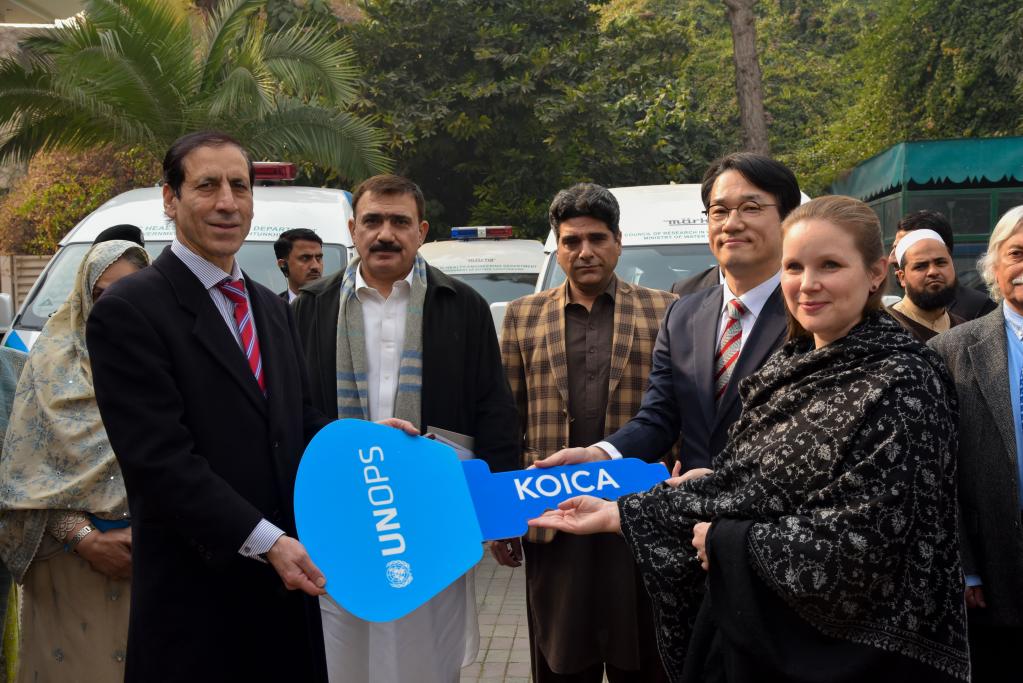
Story
06 August 2024
Building a Future Free from Child Trafficking: A Collaborative Effort!
By working together, we can build a future where no child is subjected to the horrors of trafficking and every child has the opportunity to thrive in a safe and supportive environment," emphasized Senator Ayesha Raza Farooq, Chairperson of the National Commission on Rights of Child (NCRC). "We have to act fast to ensure that no child is left behind," she added.In an unprecedented collaborative effort, the United Nations Office on Drugs and Crime (UNODC), the International Centre for Migration Policy Development (ICMPD), the International Labour Organization (ILO), the International Organization for Migration (IOM), and the Sustainable Social Development Organization (SSDO), alongside the Federal Investigation Agency (FIA), came together to commemorate World Day against Trafficking in Persons 2024 in Islamabad. The event, held under the global theme “Leave No Child Behind in the Fight Against Human Trafficking,” highlighted the collective commitment to protect children and reduce their vulnerability to trafficking.“Children are particularly vulnerable of trafficking for several reasons, including poverty, lack of access to education, humanitarian crises or lack of support networks”, said Uqbaan Khan, one of the student while talking to FIA in the margins of the commemoration of the TIP Day. Many passionate students from the National University of Moder-in Languages (NUML) Rawalpindi shared powerful messages to raise awareness. Their voices added a vibrant and inspiring dimension to the day's activities, emphasizing the urgency of protecting children from trafficking. https://fb.watch/tFBvdM8EIV/?mibextid=w8EBqM Approximately 100 participants from across Pakistan joined to discuss the urgent issue of child trafficking and emphasize the protection of children’s rights. Children represent a significant proportion of trafficking victims globally, with girls disproportionately affected. Rising inequalities and globalization have fueled complex trafficking networks, further exposing children to exploitation via online platforms.The event aimed to raise awareness about the prevalence and impact of child trafficking in Pakistan while highlighting the collaborative efforts of various organizations. National partners and stakeholders were recognized for their significant contributions to combating human trafficking.Ms Shahida Gilani read the message of UNODC Executive Director , “This year’s theme focuses on child victims, which have tripled over the past 15 years. According to UNODC’s data, globally, children account for one-third of trafficking victims, suffering unspeakable abuse.”While the Director ILO emphasized the urgent need to combat human trafficking, particularly its impact on children. “With 3.3 million children trafficked worldwide, it is crucial for state systems to adopt integrated approaches that prioritize child protection”, the Senior Programme Coordinator at IOM, highlighted the importance of stronger partnerships and improved migration management.The Executive Director of SSDO and the Head of Office at ICMPD both emphasized the need for a systematic approach to victim identification and support. They highlighted the importance of increased prosecutions, better labor inspections, and enhanced public awareness to effectively address and prevent trafficking. They also underscored the necessity of collaborative frameworks to combat human trafficking, with the ultimate goal of ensuring that no child falls through the cracks and that every child is protected from exploitation and harm.As the main stakeholders in the efforts by international agencies and civil society, government representatives Director General FIA Mr. Ahmad Ishaque Jahangir (PSP) and Abbas Ahsan, Additional Director General of FIA, spoke on the TIP Day. Director General FIA added, “Human trafficking, particularly child trafficking, is a serious human rights violation that demands our unwavering attention and action. Our work is significantly enhanced through collaboration with our esteemed partners.” And “Our society and law enforcement must acknowledge what constitutes trafficking, its prevalence in Pakistan, and its impact on children,” emphasized Additional Director General, underscoring the serious nature of child trafficking. , filtered_html
1 of 5
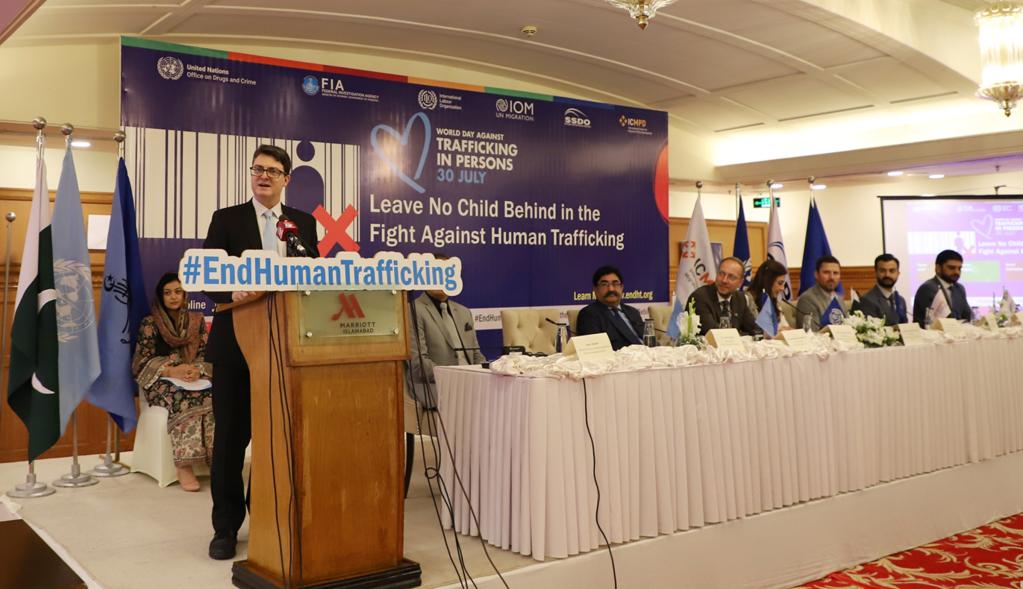
Press Release
05 February 2025
Media Update: United Nations Pakistan,5 February 2025
Government and FAO join forces to enhance food safety in PakistanIslamabad – Pakistan has taken a significant step toward strengthening its food safety and quality regulatory regime with the launch of a comprehensive food control system assessment. The initiative, led by the Food and Agriculture Organization (FAO) in collaboration with the Minitry of Planning, Development and Special Initiatives, Government of Pakistan and co-leadership of Ministry of National Food Security and Research, aims to enhance governance, strategic planning, and compliance with international food safety standards.Federal Minister for Planning, Development and Special Initiatives, Mr Ahsan Iqbal, expressed his full support for the initiative in a video message, emphasizing the importance of food safety for both public health and economic growth.“The issue of food safety and regulation has gained global significance. Pakistan faces multiple food-related challenges, including malnutrition and foodborne diseases, particularly among children. We must assign the highest priority to food safety in Pakistan—not just for the well-being of our people but also for achieving our economic growth targets,” he stated.He highlighted that under the ‘Uraan Pakistan’ initiative, exports will serve as a primary driver of economic growth.“Pakistan has immense potential in the agriculture sector. To fully realize this potential and maximize export revenues, we must align our food safety protocols with international standards. This requires a collaborative effort between government agencies, academia, and the private sector to identify regulatory gaps and implement a robust strategy,” he added.FAO Representative in Pakistan underscored the critical role of food safety in public health and economic development, reaffirming FAO’s commitment to supporting Pakistan in strengthening its national food control system.“This initiative marks the beginning of a systematic approach to modernizing Pakistan’s food safety governance. The FAO/WHO Food Control System Assessment Tool will evaluate the existing system across Punjab, Sindh, Balochistan, and Khyber Pakhtunkhwa to identify areas for improvement. The Government of Pakistan has co-signed this project, reinforcing its commitment to a science-based and internationally recognized food safety framework,” he said.Pakistan’s request for this assessment signifies its dedication to aligning with international food safety regulations, including those set by the Codex Alimentarius and the World Trade Organization’s agreements on sanitary and phytosanitary measures (SPS) and technical barriers to trade (TBT).The assessment process will involve key phases such as data gathering by national Competent Authorities, an international validation mission, and a strategic workshop to validate findings and agree on a roadmap for implementation.“By strengthening its food control system, Pakistan is not only safeguarding public health but also enhancing its global trade prospects,” the FAO Representative added.A technical presentation during the workshop highlighted that foodborne illnesses impact one in five people in Pakistan—twice the global average—resulting in an estimated productivity loss of $1.7 billion annually. Experts also emphasized the importance of adherence to Codex Alimentarius standards and the necessity of a science-based, transparent, and harmonized approach to food control.Ms Nadia Rahman, National Coordinator of Comprehensive Food Safety and Quality Regulatory Regime for Pakistan, emphasized to improve the national coordination mechanism to strengthen the food control system in Pakistan. Major General M Ayub Ahsan Bhatti, Director General Land Information Management System highlight the role of LIMS for quality in Pakistan’s Green Future through safe food and strong economy.The FAO-led assessment will provide a set of recommendations and a strategic framework to guide future interventions, ensuring that Pakistan’s food safety system is effective, transparent, and aligned with global best practices.The Government of Pakistan and FAO reaffirm their commitment to working closely with all stakeholders to enhance food safety, build consumer confidence, and open new opportunities for agricultural and food exports.More than 120 participants from academia, relevant provincial and national government line departments, food and agriculture-related associations, researchers and others attendedMedia Contact:
Shariq Lashari
Snr Communication and Media Associate
FAO Pakistan, filtered_html
Shariq Lashari
Snr Communication and Media Associate
FAO Pakistan, filtered_html
1 of 5
Press Release
05 February 2025
Media Update-2: United Nations Pakistan, 5 February 2025
UNHCR and IOM concerned about recent developments requiring Afghans to leave Pakistan’s capitalIslamabad, 5 February 2025 – UNHCR, the UN Refugee Agency and IOM, the International Organization for Migration, are concerned about recent developments requiring Afghan nationals in Pakistan to relocate from Islamabad Capital Territory (ICT) and Rawalpindi or else face deportation. The two agencies are seeking clarity over the modality and timeframe of this relocation.While UNHCR and IOM recognise that states may choose to limit freedom of movement for foreigners, including refugees, we jointly urge the Government of Pakistan to implement any relocation measures with due consideration for human rights standards, including due process, and the legal status of Proof of Registration (POR) and Afghan Citizen Card (ACC) holders, who have resided in Pakistan for an extended period of time. The uncertain timeframe to plan for a dignified move is compounding a stressful situation, not to mention the immediate impact of such a move on livelihoods and the education of children.Since 1 January 2025, an uptick in arrests of Afghan nationals in the ICT and Rawalpindi has caused significant distress, with reports of Afghan nationals of various documentation status being rounded up. More than 800 Afghan nationals, among them women and children, have been deported so far this year from Islamabad and Rawalpindi alone. This latest relocation directive has increased fears of imminent deportation among Afghans in the capital region.A UNHCR-issued non-return advisory has been in place since 2021, calling for a suspension of forced returns of Afghan nationals from any country regardless of their status. UNHCR and IOM are especially concerned for Afghan nationals who may face a risk of harm upon return, such as ethnic and religious minorities, women and girls, journalists, human rights activists, and members of artistic professions like musicians and others. "Pakistan has a proud tradition of hosting refugees, saving millions of lives. This generosity is greatly appreciated," noted UNHCR Representative Philippa Candler. "Forced return to Afghanistan could place some people at increased risk. We urge Pakistan to continue to provide safety to Afghans at risk, irrespective of their documentation status.”UNHCR and IOM understand the challenges the Pakistan Government has been facing, in particular those related to security. Refugees, like all others, have obligations to abide by the laws of Pakistan. The overwhelming majority of Afghan nationals in Pakistan are law abiding individuals, whose situation needs to be seen through a humanitarian lens.“IOM is committed to work with the Government of Pakistan and UNHCR to develop a mechanism to register, manage and screen Afghan nationals in Pakistan,” underlined IOM Chief of Mission, Mio Sato. “This will open the door to tailored solutions including international protection to those in need and pathways for Afghan nationals, with long-standing socioeconomic and family ties in the country.”For more information, please contact: UNHCR: Qaiser Khan Afridi; afridiq@unhcr.org, +92 3009353123IOM: Laetitia Vaval; lvaval@iom.int, +92 304 6535637, filtered_html
1 of 5
Press Release
22 January 2025
Media Update: United Nations Pakistan, 22 January 2025
When: Thursday, 23 January 2025 - 9:30 am to 1:00 pmWhere: Crystal Ballroom, Marriott Hotel, IslamabadWhat: The International Labour Organization, in collaboration with the World Wide Fund for Nature-Pakistan (WWF-Pakistan), invites you to the closing ceremony of the International Labour and Environmental Standards Application in Pakistan’s Small and Medium Enterprises (ILES) project. The closing event will highlight the project’s achievements, its impact, and the challenges ahead for ILES project beneficiaries. It will also feature a panel discussion with key stakeholders, constituents, ILO and WWF Pakistan beneficiaries, partner agencies and donors. The concept note and agenda are attached for further details.Who:Ms. Romina Khurshid Alam, Coordinator to the Prime Minister on Climate Change and Environmental CoordinationMr. Chaudhry Salik Hussain, Federal Minister, Ministry of Overseas Pakistanis and Human Resource DevelopmentMr. Geir Tonstol, ILO Country Director for PakistanJeroen Willems, Head of Cooperation, EU Delegation to PakistanMr. Hammad Naqi Khan, Director General, WWF Pakistan Contract for Media Enquiry:Muhammad NumanCommunications Officernuman@ilo.org0303-5000041 , filtered_html
1 of 5
Press Release
21 January 2025
Media Update: United Nations Pakistan,20 January 2025
Quetta, January 17, 2025 – Florence Rolle, FAO Representative in Pakistan, visited Quetta to foster collaboration with key Balochistan government officials, participate in the introductory meeting of the EU-funded project, “Post Floods Resilient Recovery and Strengthening of the Livestock Sector in Balochistan”, and visit project sites under the EU-funded “Revival of Balochistan Water Resources Programme (RBWRP)”.FAOR Florence Rolle accompanied by Waleed Mahdi, Head of FAO Office Balochistan, and James Okoth, Head of FAO Office Sindh, held productive meetings with Ali Akbar Baloch, Secretary Agriculture; Tayyab Lehri, Secretary Livestock; Noor Ahmed Pirkani, Secretary Forest; and DG PDMA, Rafiq Ghorezai. The discussions centred on enhancing collaboration between FAO and the Government of Balochistan to advance sustainable practices in agriculture, livestock, irrigation, and forestry.FAOR Florence also attended the introductory meeting of the “Post Floods Resilient Recovery and Strengthening of the Livestock Sector in Balochistan” project, where key decisions were made regarding the composition of the Project Steering Committee (PSC), its Terms of Reference (ToRs), and district selection criteria.In the field, FAOR Florence laid the foundation for the rehabilitation of Quetta’s Chashma Achozai Karez, an underground water channel serving over 3,000 residents and irrigating approximately 500 acres of farmland. The ongoing rehabilitation will enhance water access and agricultural sustainability for the community. She also observed the rehabilitation of earthen bunds in Chashma Achozai, which aim to improve grazing areas and increase forage availability for livestock.In Killi Atakzai village, Hanna Urak, Quetta, FAOR Florence inaugurated the first of ninety-nine climate-adaptive animal shelters, which are being built in various districts of Balochistan under the Revival of Balochistan Water Resources Programme (RBWRP). These shelters integrate rooftop water harvesting techniques and improved hygiene facilities to promote sustainable livestock management. The initiative ensures equitable access for female farmers, underscoring FAO’s commitment to fostering inclusivity and sustainable development.FAOR Florence visited the Farmer Field School in Killi Sufi Khuchlak Village, where farmers are learning innovative onion farming techniques, including seed testing, certification, and water-efficient trickle irrigation. These practices are contributing to increased incomes and enhanced water productivity.FAOR Florence also visited a local beneficiary’s field, where FAO’s distribution of certified Alfalfa seeds is enriching soil fertility, boosting fodder availability, and improving livestock health —key elements in promoting sustainable agricultural practices. , filtered_html
1 of 5
Press Release
15 January 2025
Media Update: United Nations Pakistan,14 January 2025
Islamabad/Riyadh, 14 January 2025 - UNICEF and The Muslim World League (MWL) have signed a US$1.5 million agreement to enhance education and skill-building programmes in Chad and Pakistan and to improve maternal, newborn and childcare services in Afghanistan. The agreement was signed by UNICEF Representative to Pakistan, Abdullah A. Fadil, on behalf of UNICEF’s Executive Director, Catherine Russell, and MWL’s General Manager of Strategic Partnerships, Dr. Shaima Alluqmani, on the sidelines of the global conference on Muslim World League Initiative Hosted by Pakistan “Girls’ Education in Muslim Communities: Challenges and Opportunities”, held in Islamabad, Pakistan.‘The climate crisis and digital divide are critical challenges faced by children in Pakistan every day. Providing vulnerable children and youth, especially girls, with the education and skills they need will empower them to reach their full potential and help Pakistan prosper. We look forward to working with the Muslim World League to help ensure that no girl is left behind,’ said UNICEF Representative to Pakistan, Abdullah A. Fadil.The agreement will support the "Green Skills Training Programme for Non-Formal Education Students" in Pakistan to equip adolescents - especially girls - with essential green skills and digital skills. This programme will enhance their employability and empower them to contribute to a sustainable future.In Chad, the "Renovation of Koranic Schools in Lac" programme aims to improve access to education and learning environment in Koranic schools. This programme includes teacher training, the construction of 12 classrooms, and the provision of clean water to 500 students in two schools.As for Afghanistan, the "Improving Quality of Care for Maternal, Newborn and Childcare Health Services (MNCH)" programme was designed to increase access to and utilization of high-quality MNCH services across the country through strengthening health facilities, equipping them with necessary supplies, and improving clinical practices. This program seeks to reduce maternal and newborn mortality and morbidity by ensuring better care and coverage.Dr. Shaima Al-Luqmani, Director General of Strategic Partnerships at the Muslim World League, stated that the MWL is keen for such agreements to represent an important pillar of the MWL's initiative: “Girls' Education in Muslim Communities: Challenges and Opportunities," through tangible projects that positively impact the future of millions of girls and women in Muslim societies.Al-Luqmani added that the initiatives and partnerships established by the MWL with various governmental and non-governmental regional and international organizations have emphasized inclusivity in their programs, whether in the field of girls’ education and its related services and institutions, or in raising awareness and correcting misconceptions and misinterpretations that cast doubt on the undisputed legitimate right of girls to receive education.Muslim World League and UNICEF had partnered for over 14 years, delivering impactful results for children and reaching the most vulnerable with humanitarian supplies and services in education, health, social protection, water and sanitation hygiene ‘WASH’. This longstanding collaboration aims to create sustainable solutions that address the pressing needs of children and their families around the world.***About Muslim World LeagueMuslim World League is an international non-profit, non-governmental organisation with headquarters in the holy city of Makkah. It aims to present the tolerant principles of true Islam, provide humanitarian aid, extend bridges of dialogue and cooperation with all, engage in positive openness to all cultures and civilizations, and follow the path of centrism and moderation to realize the message of Islam and ward off movement calling for extremism, violence and exclusion for a world full of peace, justice and coexistence.About UNICEFUNICEF promotes the rights and wellbeing of every child, in everything we do. Together with our partners, we work in 190 countries and territories to translate that commitment into practical action, focusing special effort on reaching the most vulnerable and excluded children, to the benefit of all children, everywhere., filtered_html
1 of 5
Latest Resources
1 / 11
Resources
08 November 2022
1 / 11




















